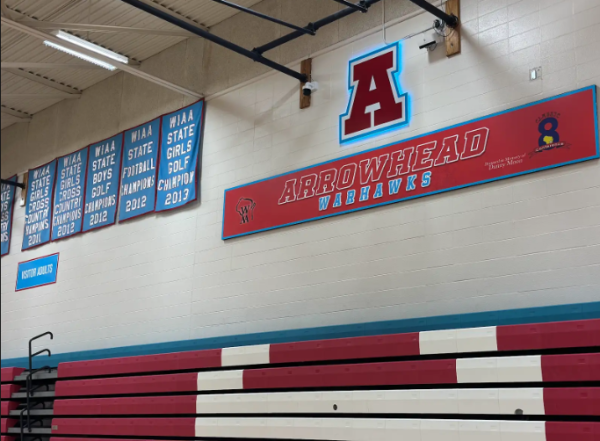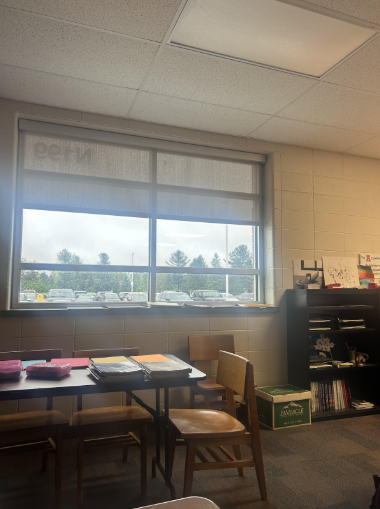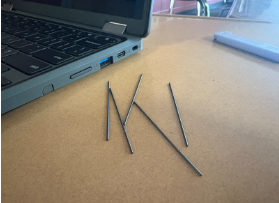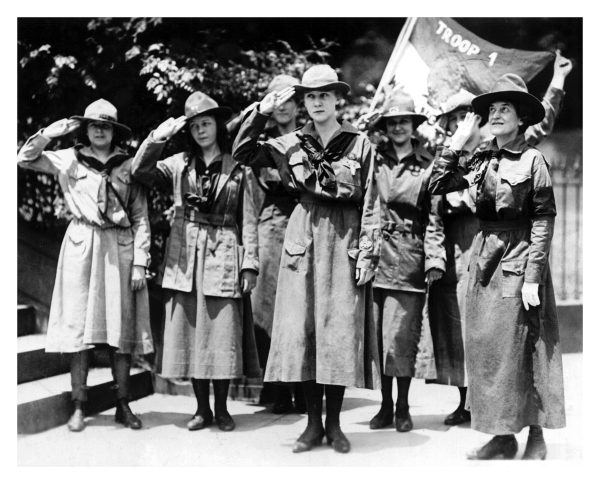Rho Kappa and Interact Club hosts Arrowhead School Board Candidate Forum
The school board has been the talk of the town at Arrowhead and associate Principal Becky Gordon’s recent email to all students urging them to register to vote for the upcoming election has only increased awareness … for those who actually check their email.
On April 4th, the Arrowhead School Board election will be held and all residents over the age of 18 who are eligible may register to do so here. The candidates for Arrowhead School Board are as follows: Tim Langer is running for the Stone Bank seat, David Landis and Amy Hemmer (incumbent) are running for the Merton seat, and Garet Galster is running for the at-large seat.
To give Hartland residents a chance to learn about these candidates, the Arrowhead Rho Kappa Club and Interact Club hosted a candidate forum on March 15th at 6:30 PM in the Arrowhead South Campus Library. Students served “as the moderators to ask all questions of the candidates” according to the official poster and a video of the full event may be viewed here.
Candidates Langer, Landis, and Galster attended this forum; however, Farris and Hemmer did not attend. Candidates who did not attend had a message read to the audience by a moderator.
Hemmer says that she “declined to participate in such” because “forums are very one-sided” but is open to “sit down” with those interested in having conversation about her viewpoints over a “cup of coffee” according to her campaign Facebook page.
Proceeding the forum, Landis responded to Hemmer’s declination to the event; he says that it is “disappointing” and that the students are “her biggest stakeholders” according to his campaign Facebook page. Hemmer responded to this comment and said that “children are children and need their parents for guidance.”
“The students are not stakeholders,” says Hemmer.
Prior to the forum, a Google Form (not to be confused with a forum) was sent out to students to give them a chance to put in questions they would like to be asked of the candidates. These answers were reviewed by the students running the event and were compiled into a set of questions asked of the candidates.
The questions consisted of two rounds; the first round had a one minute time limit, the second round had a two minute limit.
Among the twelve questions asked included one pertaining to the possibility of the “School Board” having a “full voting member of the student body on their board,” as the “Pewaukee School Board” has.
Langer says that he supports a “designated representative;” however, he has doubts about a “full voting membership” due to certain “functions of the board” that are not “appropriate for students to be participating in.”
Landis shares some of Langer’s thoughts and says that it would be a “good idea” because “the students having a voice is important” even though some aspects of a student representative may be “a little touchy.”
Students are “the most affected constituents of the board,” says Landis.
Galster agrees and says that he proposes having a representative from “each [school] campus.”
Another question asked was “if elected,” the candidate would “intend to implement” policies “restricting or removing books from school libraries.”
Both Galster and Langer’s responses were “no.”
Landis says that the “whole notion of” banning books is “ridiculous” and “freedom” in the United States “extends to everything, especially including books.”
Furthermore, candidates were asked if “students should be permitted to carry personal devices at school.”
Landis says that the recent talks of having fines up to “$400” for having a phone out at school are a “bit much” but supports “ways of limiting phone time” such as teachers taking attendance by using a “cubby.”
Galster agrees that phones “don’t belong in the classroom” and would “go one step further to consider a class on how to be a responsible phone user.
Langer says that as his “philosophy,” the school should “maximize the amount of education” students get and that students would “gain valuable life experience of operating without a phone if” they were banned.
Other questions included those about the candidate representation type, starting school at a later time; responses from the candidates can be viewed on the live stream.









